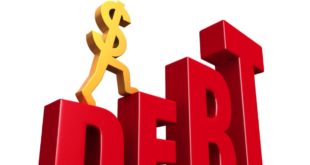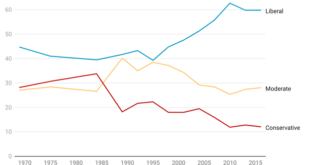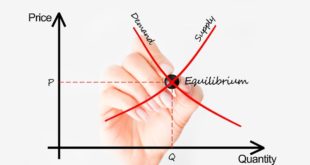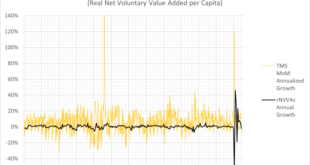Media reports claim this debt prevents economic recovery. Chuck Schumer would erase it with the flick of a pen. Elizabeth Warren would remove it to free students’ ability to buy a house and form a family. Janet Yellen opines paying off student loan debt (SLD) will free up venture capital. Alexandria Ocasio-Cortez claims the proposed Biden plan is inadequate. The complexities of SLD are simplified for the public by moving details into an abyss of aggregates; “average...
Read More »Europe’s Energy Crisis Was Created by Political Intervention
An energy policy that bans investment in some technologies based on ideological views and ignores security of supply is doomed to a strepitous failure. The energy crisis in the European Union was not created by market failures or lack of alternatives. It was created by political nudging and imposition. Renewable energies are a positive force within a balanced energy mix, not on their own, due to the volatile and intermittent nature of the technology. Politicians have...
Read More »Higher Education in Crisis: The Problem of Ideological Homogeneity
In my second article on the college problem, I discussed the public policy factors that contribute to the rising cost of higher education. But politics makes its way into education through more than public policy, as professors bring their political views into their classrooms and research. Nothing has contributed more to my personal disillusionment with higher education than seeing the extent to which the ideological problem has affected the university system. At...
Read More »The French Must Rediscover the Taste for Individual Freedom: An Interview with Professor Pascal Salin
Pascal Salin is an economist, professor emeritus at the University of Paris-Dauphine, and was president of the Mont-Pelerin Society from 1994 to 1996. Among the extensive list of books Professor Salin has published, mention can be made of the following titles: La vérité sur la monnaie (Paris: Odile Jacob, 1990), Libéralisme (Paris: Odile Jacob, 2000), Français, n’ayez pas peur du libéralisme (Paris: Odile Jacob, 2007), Revenir au capitalisme pour éviter les...
Read More »Edward Chancellor’s Much-Needed (But Not Heeded) Wisdom on Interest Rates
The subject of time and money has hit a boiling point. Just look at Sri Lanka and Iran, where food riots have turned deadly, or, shall we say, currency riots have. People can’t buy food, and “protesters angry at the soaring prices of everyday commodities including food, have burned down homes belonging to 38 politicians as the crisis-hit country plunged further into chaos, with the government ordering troops to ‘shoot on sight,’” reports invesbrain.com. Murray...
Read More »What Do Supply and Demand Curves Really Tell Us? Not Very Much
It is commonly held that prices of goods and services can produced by means of supply and demand curves. These curves describe the relationship between the prices and the quantity of goods supplied and demanded. Within the framework of supply-demand curves, an increase in the price of a good is associated with a fall in the quantity demanded and an increase in the quantity supplied. Conversely, a decline in the price of a good is associated with an increase in the...
Read More »Fed Socialist Money Manipulation Cancels Individuals’ Better Judgment
When a person is free to work, shop, and invest, he brings to each task his knowledge from doing the other tasks. As he works, he has a sense of what it takes to please customers, because he’s also a customer. As he shops, he has a sense of what workers can do for him, because he’s also a worker. As he invests, he has a sense of who adds value best, because he also works to add value and shops for value. Deadtime Makes Economic Control Hard for Everyone Government...
Read More »Higher Education Woes: Student Loans Help Fuel Higher College Costs
In my previous article on the college problem, I discussed the cultural factors that have contributed to the falling value of a university degree, which I hoped would show that we cannot reduce the decline of higher education to public policy failures. However, bad policy has been a major contributor to the problems plaguing the university system, both at the federal and state levels. President Joe Biden’s plan to eliminate up to $20,000 of student loan debt for...
Read More »Does Bank Lending by Itself Set Off Boom and Bust Cycles?
Popular thinking says that banks are the key factor in the expansion of credit. However, is this really the case? For example, take a farmer Joe that produces two kilograms of potatoes. For his own consumption, he requires one kilogram, and lends the rest for one year to a farmer Bob. The unconsumed one kilogram of potatoes that he agrees to lend is his savings. The precondition for lending is that there must be savings first, as lending must be backed by savings. By...
Read More »Interview with Jakub Bożydar Wiśniewski
In today’s world, dominated as it is by the ephemeral, the superficial, and the inconsequential, it can be hard for a rational, dispassionate observer to make sense of what is going on—politically, socially, economically, and philosophically. It is that last aspect that gets the least “oxygen” in mainstream media, in public education, and in pretty much all debates and disagreements we grapple with as a society. Perhaps the very discipline of Philosophy, academically...
Read More » Swiss Economicblogs.org
Swiss Economicblogs.org










